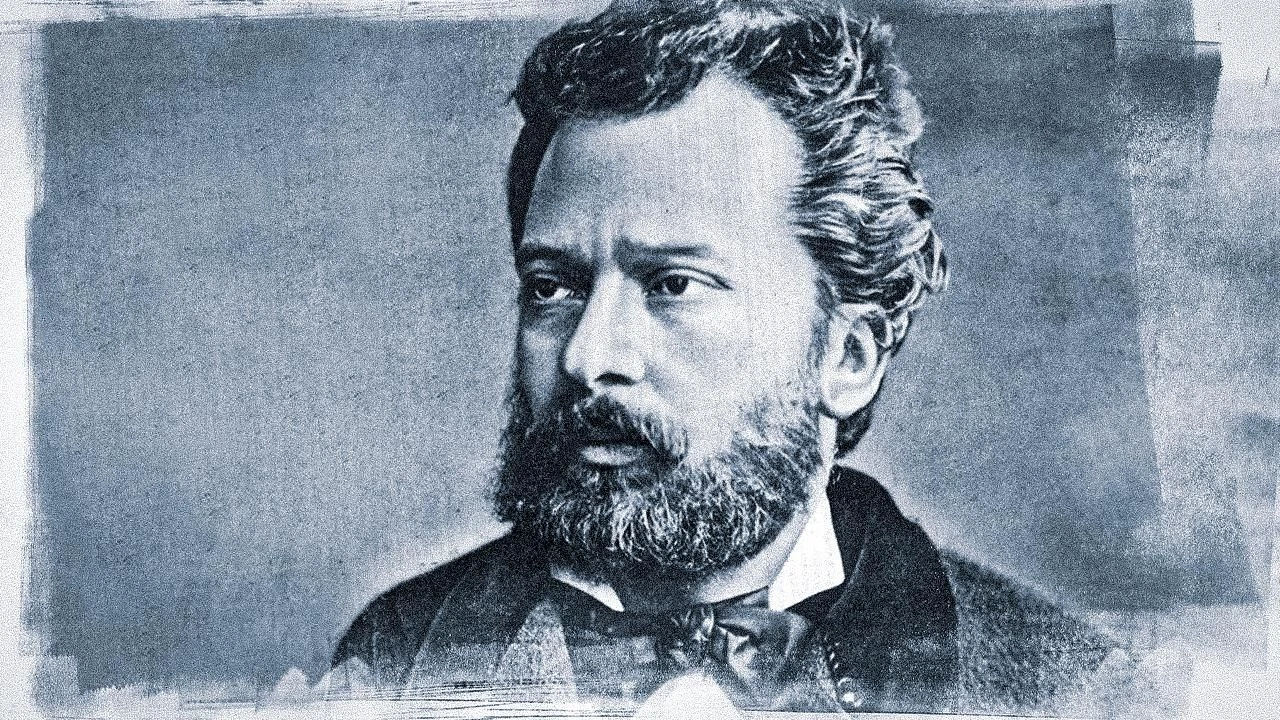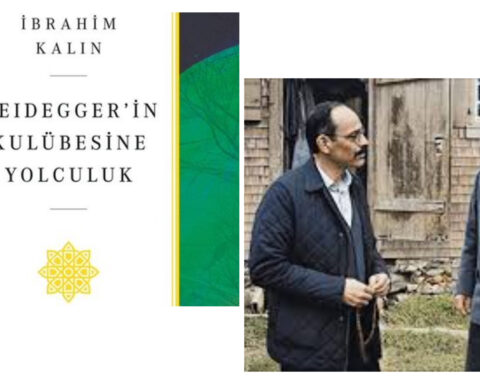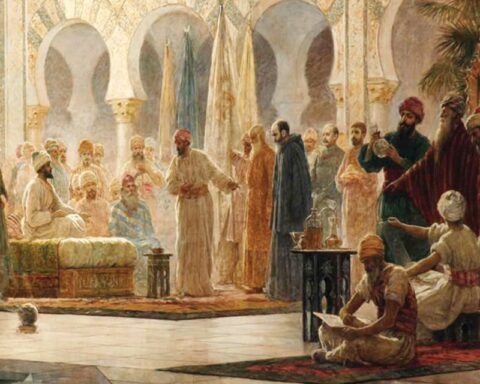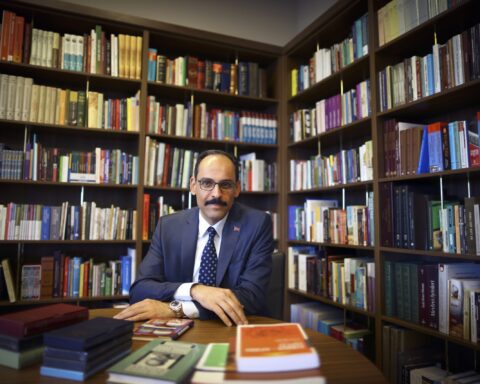İbrahim Kalın
Mar 31, 2018
The debate over the Enlightenment continues to hover over current discussions of Islam, modernity and tradition. The claim that Muslim scholars and intellectuals of the 19th century did not know or understand the new pathos of Western modernity is false. They knew well what they were faced with and developed critical attitudes and engaged the Enlightenment in ways that are still important today.
Like many of his contemporaries, prominent Ottoman intellectual and writer Namık Kemal (1840 to 1888) had a critical and selective approach to the new spirit of modern European civilizations. On the one hand, he acknowledged the rising power of Western societies and sought to understand what made it possible. European societies had made serious economic, political and military progress and this had given them the upper hand against the Ottoman Empire and the rest of the world. Kemal called for a new course of action that could save the empire and the Muslim world from the onslaught of invading armies and encroaching cultural assimilation.
Again, he was a strong advocate of maintaining the religious and cultural values of Muslim nations as the basis of any program of reform and renewal. He was a loyalist of the empire and his call for reforming the existing political and economic system was designed to save, not destroy it. He considered it possible to reconcile the ideas of reason, rationality, individual freedom, social contract, separation of powers and rule of law with traditional Islamic doctrines. Such a synthesis was the only way to save the empire as the political and spiritual leader of the Muslim world.
Kemal saw freedom as an innate quality of all human beings, without which one cannot claim to have even religion. He grounded freedom in divine creation when he said that “man is born with freedom and destined to use this divine gift.” Freedom as the protection of the individual against the aggression of others, including society and the state, also ensures social harmony. No society can establish peace and justice without freedom. But freedom as a divine gift does not alienate people from God, but rather brings them closer to the creator. Freedom is not a Promethean idea to be used against God or religion. This may have been the experience of European societies. Voltaire, Rousseau and others may have had to go along this path, but this cannot be the course of Muslim societies that have a different heritage of reason, freedom and individual rights. The Enlightenment may serve as a reminder of the importance of reason and freedom, but it cannot be the model to be emulated in total in Muslim countries. Kemal and his contemporaries could not have imagined a secular and uprooted concept of reason and freedom in the way it developed in the West
Kemal was aware of the huge political changes in Europe and thus called for a reworking of French constitutionalism for the Ottoman Empire: “The instrument that will ensure our political rights and save the state from collapsing is a constitutional order based on the example of the governance of the French.” He hastened to add, however, that “we have delegated the governance of state affairs to the Family of Osman through a binding allegiance. We always want the Family of Osman. We always want the constitutional order.”
While calling for a reform of state affairs for better and more efficient governance, Kemal was unambiguous about the religious foundations of good governance: “Sharia is the heart and source of life for our state. … Since the thoughts and attitudes of the peoples of the east are largely based on Islamic principles, if we will have to apply French laws as a whole in our country, not only the people of Islam, but also the communities of other faiths will not be satisfied with them.” He held that the calamities that happened to Muslim societies have happened because they have neglected or ignored Islamic principles. For Kemal, this was not simply a matter of sociology, but rather thoroughly metaphysical because “what clarifies what is truth and what is falsehood is not philosophical reflections but religiously inspired principles. Virtuous ethics emanate from acquiring the ethical and spiritual qualities of the divine, not from the personal opinion of some writers.” Kemal criticized Muslims for using the concept of divine destiny to justify their lethargy and pacifism. He rejects fatalism and called on Muslims to understand the delicate balance between God’s universal will and human’s limited will. The former does not nullify the latter, otherwise people would not be able to be held accountable for their choices and actions. Faith in destiny is part and parcel of Islam but cannot be used as an excuse to abstain from the mission God has given to people, i.e., upholding justice and making use of God’s gifts to thank him. Islam is not a world-denying religion, it does not preach monastic life, it considers the world as ephemeral and transitory and it can be a trap for one’s journey to God.
The world is also a blessing, a great work of God and a place of trial to see who is best suited to carry the divine mission from birth to death. The joys of the world are never seen as inherently bad or sinful. Exploring the universe and enjoying its beauty is an extension of faith and brings people closer to God – it is a matter of approaching the world in the right manner so that we do not surrender ourselves to it. It was with this understanding that Muslims built the great Islamic civilization extending from Central Asia to Andalusia. We need to remember what made these great cultural and civilizational revolutions possible and understand what led to their demise. The cure lies not outside, but within.
Kemal’s defense against French historian Ernest Renan’s attack on Islam and civilization can also be read as a critique of the Enlightenment Eurocentrism. Written in 1883, the same year Renan gave his controversial speech at the Sorbonne, Kemal’s small booklet attacks Renan for his deep ignorance and deliberate distortion of Islamic history. Jamal al-Din Afghani also wrote a response to Renan, but his tone was more moderate than that of Kemal’s. Kemal rejects Renan’s historical racism and dogmatic positivism and reminds him of Islamic civilizations’ great achievements in mathematics, physics, astronomy, medicine and other sciences.
He vehemently denied the claim that religion is an obstacle to civilization and progress. To the contrary, Islam produced one of the greatest and most enduring civilizations in history and there is nothing in Islam to suggest that Muslims cannot make advances in science, technology, economy, education, urban development or other areas. He rejected the suggestion that Muslims cannot progress in the modern world without secularizing themselves and going through the process of the Protestant Reformation. He attacked anti-Islamic European thinkers for spreading false ideas about Islam and said: “When the Spanish took Granada, they threw people into fire to force them to change their religion. When we took Istanbul, we granted each religious community the right to perform their religion.”Kemal’s critical engagement of the Enlightenment is important to understand the subtle dynamics of tradition and modernity on the one hand, and Islamic and Western societies, on the other. Since Kemal’s time, the Enlightenment has been subjected to thorough criticism from Western and non-Western intellectuals. There is no need to carry on with a sort of Enlightenment romanticism. It thus remains a challenge for the Muslim world to maintain the relevance and vitality of its intellectual and moral tradition without either closing itself off to the world or surrendering to the whims and malaises of late modernity.






